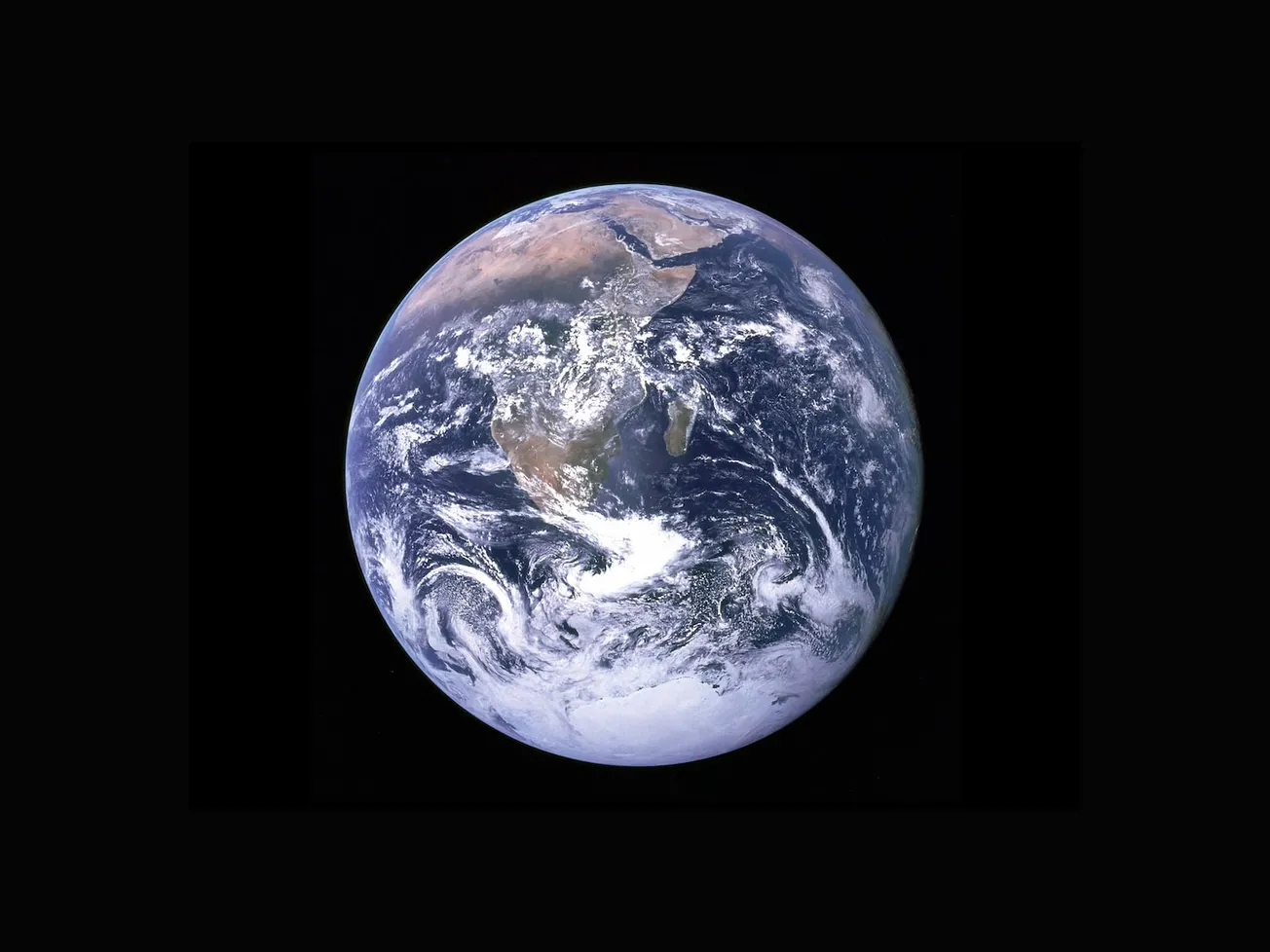Table of Contents
“The Great Reset” is nothing new. In essence it’s another variation of “repent or perish”.
Put in the simplest possible terms: if, as human beings, we do not collaborate to confront our existential challenges (the environment and the global governance free fall, among others), we are doomed. Thus, we have no choice but to summon up the better angels of our nature.
Unless individual nations and international organizations succeed in finding solutions to better collaborate at the global level, we risk entering an ‘age of entropy’ in which retrenchment, fragmentation, anger and parochialism will increasingly define our global landscape, making it less intelligible and more disorderly.
But why now? The reason can be summed up in the quote by Winston Churchill: “Never let a good crisis go to waste.” The crisis is of course Covid-19.
History shows that epidemics have been the great resetter of countries’ economy and social fabric. Why should it be different with Covid-19?
The deep disruption caused by Covid-19 globally has offered societies an enforced pause to reflect on what is truly of value. With the economic emergency responses to the pandemic now in place, the opportunity can be seized to make the kind of institutional changes and policy choices that will put economies on a new path towards a fairer, greener future.
“The Great Reset” wants us to all realise that we are all in this thing together and to save the planet we must all act together. No dissent allowed. After all, it’s everyone’s lives that are at stake.
Yet, this is what we have been doing. … Since we are now in the same boat, humanity has to take care of the global boat as a whole.
So how does the “The Great Reset” see the post-Covid world? With regards to world leadership, it sees world leaders who are “kind” and “inclusive”.
In relation to the first question, changing course will require a shift in the mindset of world leaders to place greater focus and priority on the well-being of all citizens and the planet.
It sees a world where economic progress is not measured by GDP but measured in terms of things like ‘health’, ‘happiness’, ‘responsible eating’ and of course ‘caring for the environment’.
First, GDP itself needs to be updated to reflect the value created in the digital economy, the value created through unpaid work as well as the value potentially destroyed through certain types of economic activity.
We do not know yet whether the “tyranny of GDP growth” will come to an end, but different signals suggest that the pandemic may accelerate changes in many of our well-entrenched social norms. If we collectively recognize that, beyond a certain level of wealth defined by GDP per capita, happiness depends more on intangible factors such as accessible healthcare and a robust social fabric than on material consumption, then values as different as the respect for the environment, responsible eating, empathy or generosity may gain ground and progressively come to characterize the new social norms.
In fact it sees GDP as one of the reasons why we’re in the precarious state we’re in (from its point of view of course.)
Policy-makers’ over-reliance on GDP as an indicator of economic prosperity has led to the current state of natural and social resource depletion.
And if “The Great Reset” gets its way, expect to see more government intervention.
It is now conceivable that, in the future, government will try to wield its influence over central banks to finance major public projects, such as an infrastructure or green investment fund. Similarly, the precept that government can intervene to preserve workers’ jobs or incomes and protect companies from bankruptcy may endure after these policies come to an end. It is likely that public and political pressure to maintain such schemes will persist, even when the situation improves.
For all the reasons expanded upon in the first chapter, Covid-19 has rewritten many of the rules of the game between the public and private sectors. In the post-pandemic era, business will be subject to much greater government interference than in the past.
Now I’m no economist. In fact, I never even did economics at school. But I’m willing to bet anyone with any expertise in economics will love this following bit.
Put in the simplest possible (and, in this case, simplistic) terms, MMT runs like this: governments will issue some debt that the central bank will buy. If it never sells it back, it equates to monetary finance: the deficit is monetized (by the central bank purchasing the bonds that the government issues) and the government can use the money as it sees fit. It can, for example, metaphorically drop it from helicopters to those people in need. The idea is appealing and realizable, but it contains a major issue of social expectations and political control: once citizens realize that money can be found on a “magic money tree”, elected politicians will be under fierce and relentless public pressure to create more and more, which is when the issue of inflation kicks in.
[…] First, the decision to engage in perpetual quantitative easing (ie in monetary finance) doesn’t have to be taken when the central bank buys the debt issued by the government; it can be left to the contingent future to hide or circumvent the idea that money “grows on trees”. Second, the inflationary impact of helicopter money is not related to whether the deficit is funded or unfunded, but is directly proportional to the amount of money involved. There are no nominal limits to how much money a central bank can create, but there are sensible limits to how much they would want to create to achieve reflation without risking too much inflation.
As I say, I’m no economic expert, but to me all this says is, “We’ll just print money but we’ll be careful not to print too much, or at least space it out, to avoid inflation.” (Please put in the comments whether I’m right or wrong.)
Not surprisingly, “The Great Reset” sees wages becoming a measurement of social value rather than just how much money you can make for your boss.
In the future, will society accept that a star hedge-fund manager who specializes in short-selling (whose contribution to economic and social welfare is doubtful, at best) can receive an income in the millions per year while a nurse (whose contribution to social welfare is incontrovertible) earns an infinitesimal fraction of that amount? In such an optimistic scenario, as we increasingly recognize that many workers in low-paid and insecure jobs play an essential role in our collective well-being, policies would adjust to improve both their working conditions and remuneration. Better wages would follow, even if they are accompanied by reduced profits for companies or higher prices; there will be strong social and political pressure to replace insecure contracts and exploitative loopholes with permanent positions and better training. Inequalities could therefore decline but, if history is any guide, this optimistic scenario is unlikely to prevail without massive social turmoil first.
In line with this, “The Great Reset” yearns for a world where there is no inequality.
Social unrest negatively affects both economic and social welfare, but it is essential to emphasize that we are not powerless in the face of potential social unrest, for the simple reason that governments and to a lesser extent companies and other organizations can prepare to mitigate the risk by enacting the right policies. The greatest underlying cause of social unrest is inequality. The policy tools to fight unacceptable levels of inequality do exist and they often lie in the hands of governments.
“The Great Reset” makes it clear it opposes globalisation. Instead it predicts an inbetween it calls “regionalisation”.
The most likely outcome along the globalization–no globalization continuum lies in an in-between solution: regionalization.
At the same time however it proposes more global governance, which of course in practice means international organisations such as WHO having far more power.
The establishment of a much more inclusive and equitable form of globalization that makes it sustainable, both socially and environmentally, is the only viable way to manage retreat. This requires policy solutions addressed in the concluding chapter and some form of effective global governance.
The absolute prerequisite for a proper reset is greater collaboration and cooperation within and between countries. Cooperation – a ‘supremely human cognitive ability’ that put our species on its unique and extraordinary trajectory – can be summed up as ‘shared intentionality’ to act together towards a common goal.
This will only come about through improved global governance – the most ‘natural’ and effective mitigating factor against protectionist tendencies. However, we do not yet know how its framework will evolve in the foreseeable future. At the moment, the signs are ominous that it is not going in the right direction. There is no time to waste. If we do not improve the functioning and legitimacy of our global institutions, the world will soon become unmanageable and very dangerous. There cannot be a lasting recovery without a global strategic framework of governance.
And let’s not forget how humans are destroying the planet.
By now, an increasing number of scientists have shown that it is in fact the destruction of biodiversity caused by humans that is the source of new viruses like Covid-19. These researchers have coalesced around the new discipline of ‘planetary health’ that studies the subtle and complex connections that exist between the well-being of humans, other living species and entire ecosystems, and their findings have made it clear that the destruction of biodiversity will increase the number of pandemics.
And the solution?
Commuting less, working remotely a bit more, bicycling and walking instead of driving to keep the air of our cities as clean as it was during the lockdowns, vacationing nearer to home: all these, if aggregated at scale, could lead to a sustained reduction in carbon emissions.
Also, the role of public health will evolve and expand. Well-being has to be addressed holistically; we cannot be individually well in a world that is unwell. Therefore, planetary care will be as important as personal care, an equivalence that strongly supports the promotion of principles we previously discussed, like stakeholder capitalism, the circular economy and ESG strategies.
As for things like doctor visits …
In the future, it is certain that more medical care will be delivered remotely. It will in turn accelerate the trend towards more wearable and at-home diagnostics, like smart toilets capable of tracking health data and performing health analyses.
Yes, you read that right. “The Great Reset” proposes a future where even your own shit is monitored.
“The Great Reset” also sees businesses run not for profit but for reasons such preventing as stopping climate change.
Whether espoused openly or not, nobody would now deny that companies’ fundamental purpose can no longer simply be the unbridle [sic] pursuit of financial profit; it is now incumbent upon them to serve all their stakeholders, not only those who hold shares.
As for individualism versus collectivism…
This is ultimately a moral choice about whether to prioritize the qualities of individualism or those that favour the destiny of the community. It is an individual as well as a collective choice (that can be expressed through elections), but the example of the pandemic shows that highly individualistic societies are not very good at expressing solidarity.
And finally …
This might be another personal reset: the understanding that conspicuous consumption or excessive consumption of any kind is neither good for us nor for our planet, and the subsequent realization that a sense of personal fulfilment and satisfaction need not be reliant on relentless consumption – perhaps quite the opposite.
In other words, “In the future you will own nothing and you be happy.”
All excerpts from: Schwab, K. & Malleret, T. (2020) COVID-19: The Great Reset.









